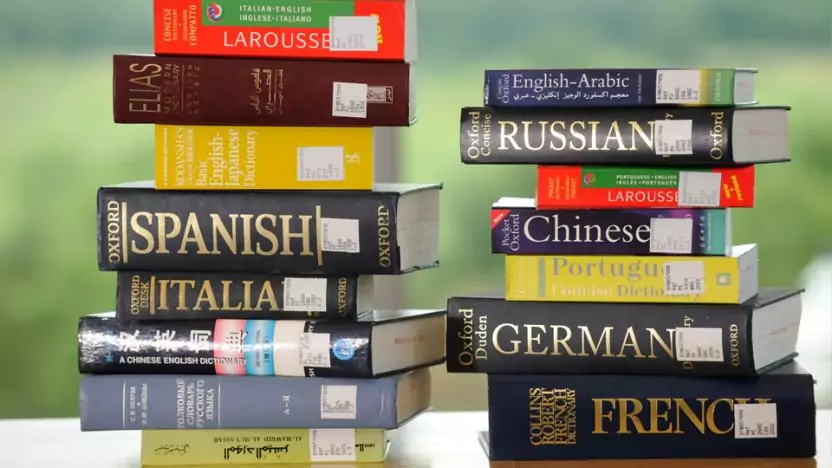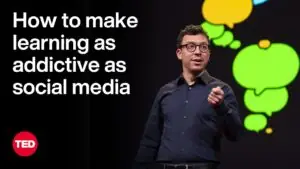We’ve all been there. Picking up a book in a language we’re learning and feeling the weight of every unfamiliar word and phrase. The anticipated joy of reading turns into a challenging puzzle. But is it possible to ever love reading in a second language as much as in our native tongue? Let’s dive into the experiences of language learners from the Reddit community.

✅ AI Essay Writer ✅ AI Detector ✅ Plagchecker ✅ Paraphraser
✅ Summarizer ✅ Citation Generator
Key Takeaways:
- Many language learners experience challenges when trying to immerse themselves in literature written in their target language.
- Reading in a foreign language offers numerous benefits, including exposure to authentic language usage, vocabulary acquisition, and a deeper cultural understanding.
- The Reddit community’s experiences with reading in a second language vary widely, with some finding it as enjoyable as reading in their native tongue over time, while others struggle to overcome the “learner’s perspective.”
- Patience, persistence, and starting with simpler texts are commonly suggested strategies to enhance the reading experience in a foreign language.
Every language learner reaches a turning moment in their journey—a point where they feel capable enough to explore the literature in their target language. Filled with pride and excitement over their accomplishments, they anxiously pick up a book, anticipating the joy of reading in a new tongue. However, this is often when the realization hits: it’s not as effortless as they had hoped. This is what happened to a Reddit user who shared on social media,
“I’ve read about 700,000 words into reading in my target language and I’m wondering if I’ll ever be able to fall into a book the way I can in English.”
They described the ease with which they could immerse themselves in an English novel, contrasting it with the mental effort required to read even simpler books in the language they’d been learning.
“In my target language, I find it mentally taxing to read more than an hour or so at a time, even when I’m reading very easy books like Isadora Moon or Goosebumps. I also keep finding myself very aware of the language as I read.”
Looking at the problem from a broader angle, it becomes evident that the challenge here is usual: how to stay connected with the narrative while trying to comprehend the lines of words. For many, this initial daunting experience of reading in a foreign language can be demoralizing. The once exhilarating journey of language learning suddenly feels like an uphill battle, with the joy of reading overshadowed by the weight of unfamiliar words and structures. This discouragement, unfortunately, leads many to abandon not just reading but sometimes their entire language-learning ambitions. They feel that if they can’t connect with literature—a universal form of human expression—in their target language, then perhaps they aren’t cut out for fluency.

However, our Reddit user isn’t one to be easily deterred. Despite the challenges, they remain steadfast in their desire to bridge the gap between comprehension and connection. This is why they bring up their concerns to the Reddit folks, hoping to find guidance, advice, and perhaps a few success stories from those who’ve walked this path before and emerged triumphant.
The Dual Sides of Reading in a Non-Native Language
Reading in a foreign language is a complex challenge that goes beyond understanding words on a page. Difficult vocabulary and confusing syntax that language learners aren’t accustomed to are just the tip of the iceberg. At the same time, there are deeper complexities that just drilling grammar books won’t help with.
- Unfamiliar Vocabulary: One of the most immediate barriers is encountering unfamiliar words. While learners might have a strong grasp of conversational vocabulary, literature often introduces a richer and more varied lexicon. This can mean frequent pauses to consult a dictionary, disrupting the flow of reading.
- Complex Sentence Structures: Literary language often employs more intricate sentence structures than everyday speech. Long, descriptive sentences, subordinate clauses, and nuanced use of tenses can be puzzling, especially for those not yet fluent.
- Cultural Nuances: Literature is a reflection of culture, and many references, idioms, or cultural contexts might be unfamiliar to a foreign reader. Without understanding these nuances, one might miss the deeper meanings or emotions that the author intended to convey.
- Mental Fatigue: Reading in a foreign language requires a higher cognitive load. The constant process of translating, understanding context, and making sense of unfamiliar grammar can be mentally exhausting, making it hard to read for extended periods.
- Lack of Emotional Resonance: Often, the emotional impact of a story might not hit as hard when reading in a second language. The subtle play of words that evokes strong feelings in native readers might not have the same effect if one is too focused on understanding the literal meaning.
- Overthinking Grammar: Instead of simply enjoying the narrative, learners might find themselves hyper-focused on the mechanics of the language. Questions like “Why is this verb conjugated this way?” or “What is the function of this word in the sentence?” can become distractions.
Despite these challenges, reading literature in a foreign language offers exceptional rewards. It provides a deeper immersion into the language, exposes learners to authentic usage, and offers a unique window into another culture’s worldview. The key is approaching it with patience, the right strategies, and understanding that every challenge is a step closer to fluency.
For those who persevere through the initial troubles, the benefits are numerous:
- Enhanced Language Skills: Regular reading can significantly expand vocabulary, improve grammar, and refine pronunciation. Over time, learners often find that they can understand and express themselves more fluently, not just in reading but also in speaking and writing.
- Cultural Enrichment: Digging into literature allows one to explore the heart and soul of a culture. From its history and traditions to its values and beliefs, literature provides insights beyond what can be learned from textbooks or language classes.
- Cognitive Benefits: Reading in a foreign language stimulates the brain, enhancing cognitive abilities like problem-solving, memory, and critical thinking. It’s a mental workout that can sharpen the mind.
- Increased Empathy: Engaging with characters and stories from diverse backgrounds fosters empathy and understanding. It allows readers to see the world from different perspectives, promoting global awareness and open-mindedness.
- Sense of Achievement: Conquering a book in a foreign language is a significant accomplishment. It boosts confidence and serves as a testament to one’s dedication and hard work.
- Deeper Connection with Native Speakers: Being able to discuss literature, share favorite authors, or quote memorable lines can lead to deeper connections with native speakers. It’s a shared experience that can bridge cultural gaps and foster genuine friendships.
No doubt reading in a foreign language can be filled with challenges, yet the destination is rich with rewards. Those who stay the course, embracing both the struggles and the joys of the process, find themselves not just better language learners but also more enriched individuals. Clearly, the author of the post recognizes these potential benefits. Let’s find out if their hunt for advice and guidance on Reddit was rich in results yielded fruitful outcomes.
Diverse Perspectives of Literary Exploration
The blend of triumphs and challenges of reading in a foreign language can be easily traced in the feedback that other learners left under the post. Luckily for our hero, they aren’t isolated in their struggles. The community’s involvement should serve as extra encouragement and drive for continued language learning and personal growth. While there are stories of both wins and losses, the general agreement is that with consistent practice and realistic step-by-step objectives, success is assured.
The Triumphs
The joy of breaking through initial barriers and truly connecting with a narrative in a foreign language is a reward many language learners adore. One user beautifully summarized this experience, stating,
“When I started reading in my TL, it was like I was experiencing the story behind a curtain… As I read more, that layer is vanishing and it’s like I’m experiencing it in English.”
Experiencing literature in its original form, unfiltered by translation, offers unparalleled depth and richness. A commenter highlighted this advantage, noting,
“I read almost exclusively in English, which is my second language… whatever you miss due to your poorer vocabulary etc, is less than what would be inevitably lost in translation.”
For some, the immersion in a second language goes beyond just reading. Another user shared that it becomes an integral part of their identity. Such profound shifts emphasize the potential for deep connection with a second language.
“I can now read better in my second language compared to my native language… I now mainly think in my second language.”
The Challenges
However, the path to literary fluency in a foreign language isn’t without its burdens. The leap from conversational language to literary language can be daunting, as one user pointed out,
“Books often have more advanced vocabulary than tv shows or movies so at first you hit a wall.”
Moreover, the academic approach to reading in a foreign language can sometimes overshadow the joy of the experience. A candid reflection from a student revealed,
“I used to LOVE reading, but this was ruined when I started reading in my target language… This completely destroyed my love for reading.”
Guidance from the Community
A frequent idea in the responses to the post’s author is the emphasis on patience, persistence, and finding joy in learning. The community suggests that while the road to literary fluency in a foreign language is filled with challenges, it’s the approach and mindset that make all the difference.
Many users advocate for the importance of extensive reading. Instead of getting bogged down by every unfamiliar word or phrase, the advice is to immerse oneself in the story, allowing the context to provide understanding. As one user advised,
“What helps: don’t push yourself as a beginner… Extensive and intensive reading are two different approaches, each with their own strengths. If you already have solid vocab, give extensive reading a go.”
Choosing the right material is another crucial piece of advice. Starting with familiar stories or genres can make the transition smoother. A user suggested, “Start with kids books… Read books that interest you… Try to read really good original texts in the target language.” The idea is to find content that resonates, making the reading experience enjoyable rather than a chore.
Setting realistic goals and celebrating small victories along the way can also boost motivation. One user emphasized the importance of long-term objectives, stating, “Set yourself long term goals to motivate you to put in the work over time… I had reading Gabriel García Márquez in the original as my big Spanish-learning goal.”
Lastly, the community underscores the importance of embracing the journey itself. Every challenge faced, every new word learned, and every page turned is a step closer to fluency. The key is to enjoy the process, learn from the setbacks, and celebrate the progress.
Handpicked books for every level
Following the community’s emphasis on choosing the right material, a key step in reading in a foreign language is selecting books that align with one’s proficiency level. Diving into a complex novel too early can be discouraging while opting for something too simple might not provide the desired challenge. To aid in this selection process, here’s a curated list of book recommendations tailored for different proficiency levels in some of the most popular target languages.

Whether you’re a beginner looking for a gentle introduction or an advanced learner seeking a deep dive into literary nuances, this list aims to guide you in finding the perfect read. Remember, the journey of reading in a foreign language is as much about enjoying the story as it is about language acquisition. Choose books that resonate with you, and let them be your gateway to linguistic and cultural exploration.
| A1 (Beginner) | B1 (Intermediate) | C1 (Advanced) | |
| English 🏴 | “Brown Bear, Brown Bear, What Do You See?” by Bill Martin Jr. and Eric Carle | “Charlotte’s Web” by E.B. White | “To Kill a Mockingbird” by Harper Lee |
| “The Very Hungry Caterpillar” by Eric Carle | “The Little Prince” by Antoine de Saint-Exupéry (English translation) | “Pride and Prejudice” by Jane Austen | |
| “Goodnight Moon” by Margaret Wise Brown | “The Giver” by Lois Lowry | “1984” by George Orwell | |
| Spanish 🇪🇸 | “¡Buenas noches, Luna!” by Margaret Wise Brown (Spanish translation of “Goodnight Moon”) | “Manolito Gafotas” by Elvira Lindo | “Cien años de soledad” by Gabriel García Márquez |
| “¿Eres tú mi mamá?” by P.D. Eastman (Spanish translation of “Are You My Mother?”) | “La ciudad de las bestias” by Isabel Allende | “La sombra del viento” by Carlos Ruiz Zafón | |
| “El pollo Pepe” by Nick Denchfield | “El príncipe de la niebla” by Carlos Ruiz Zafón | “Ficciones” by Jorge Luis Borges | |
| French 🇫🇷 | “Le Petit Prince” by Antoine de Saint-Exupéry | “Le Petit Nicolas” by René Goscinny | “L’Étranger” by Albert Camus |
| “T’choupi va sur le pot” by Thierry Courtin | “Les vacances du Petit Nicolas” by René Goscinny | “La Peste” by Albert Camus | |
| “Moi, le loup et les chocos” by Delphine Perret | “Kamo: L’Agence Babel” by Daniel Pennac | “Madame Bovary” by Gustave Flaubert | |
| German 🇩🇪 | “Oh, wie schön ist Panama” by Janosch | “Momo” by Michael Ende | “Die Verwandlung” by Franz Kafka |
| “Bobo Siebenschläfer” by Markus Osterwalder | “Das doppelte Lottchen” by Erich Kästner | “Der Vorleser” by Bernhard Schlink | |
| “Das kleine Ich bin ich” by Mira Lobe | “Tschick” by Wolfgang Herrndorf | “Narziss und Goldmund” by Hermann Hesse |
Follow us on Reddit for more insights and updates.





Comments (0)
Welcome to A*Help comments!
We’re all about debate and discussion at A*Help.
We value the diverse opinions of users, so you may find points of view that you don’t agree with. And that’s cool. However, there are certain things we’re not OK with: attempts to manipulate our data in any way, for example, or the posting of discriminative, offensive, hateful, or disparaging material.